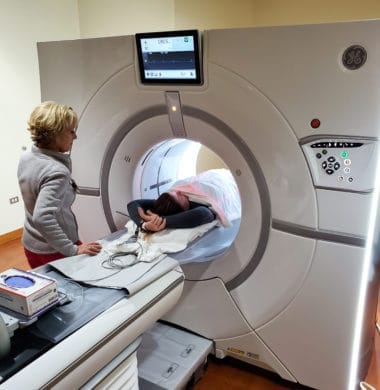Globally, heart disease is the primary cause of death, accounting for approximately 17.9 million fatalities per year. To help combat this deadly disease, healthcare professionals have developed various tools to assess an individual’s risk of developing heart disease. One such tool is the Calcium Heart Score, a test that measures the amount of calcium buildup in the arteries that supply blood to the heart.
What Is A Calcium Heart Score?
A Calcium Heart Score is a non-invasive diagnostic test that measures the amount of calcium buildup in the coronary arteries. When calcium deposits accumulate in coronary arteries, they can cause the arteries to constrict and decrease blood flow to the heart. This condition is known as atherosclerosis, and it is a leading cause of heart disease.
The Calcium Heart Score is a valuable tool that helps healthcare professionals assess an individual’s risk of developing heart disease. Medical practitioners may identify people who are at risk for developing heart disease.
How Is Calcium Heart Score Measured?
The Calcium Heart Score is measured using a specialized imaging test known as a coronary artery calcium scan or cardiac CT scan. During the test, the individual lies on a table, and a special X-ray machine takes pictures of the heart. The images produced by the X-ray machine are then processed by a computer, which calculates the amount of calcium buildup in the coronary arteries.
The Calcium Heart Score is reported as a numerical value, which ranges from 0 to over 400. A score of 0 indicates that there is no evidence of calcium buildup in the coronary arteries, while a score of over 400 indicates extensive calcium buildup and a high risk of developing heart disease. When the score is higher, there is a larger likelihood of acquiring cardiovascular disease.
It is important to note that the Calcium Heart Score is not a standalone diagnostic tool. Healthcare professionals use the score in combination with other factors, such as age, sex, family history, and lifestyle factors, to determine an individual’s overall risk of developing heart disease. Additionally, the test is not suitable for everyone, and healthcare professionals may recommend alternative tests for individuals who are unable to undergo a cardiac CT scan.
Who Should Get A Calcium Heart Score Test?
Healthcare professionals typically recommend a Calcium Heart Score test for individuals who are at moderate risk of developing heart disease. Moderate risk is defined as having a 10% to 20% chance of developing heart disease within the next ten years based on other risk factors such as age, sex, cholesterol levels, blood pressure, and family history.
Individuals who have a family history of heart disease, high blood pressure, high cholesterol, or who smoke may also benefit from a Calcium Heart Score test, even if they are not considered at moderate risk.
It is important to note that the Calcium Heart Score test is not suitable for everyone. Pregnant women, individuals with a history of kidney disease or allergic reactions to contrast agents, and individuals who are unable to hold their breath for a short period are not eligible for the test.
Why Is Calcium Heart Score Important?
The Calcium Heart Score is an important tool that helps healthcare professionals identify individuals who are at risk of developing heart disease. The test is non-invasive, quick, and relatively inexpensive compared to other diagnostic tests. The results of the test provide healthcare professionals with valuable information that can help them develop an individualized treatment plan to prevent or manage heart disease.
Additionally, the Calcium Heart Score test can help individuals make important lifestyle changes to reduce their risk of developing heart disease. For example, individuals with a high Calcium Heart Score may be advised to make lifestyle changes, such as adopting a heart-healthy diet, increasing physical activity, quitting smoking, and managing stress.
In some cases, healthcare professionals may also prescribe medications to reduce the risk of developing heart disease. For example, individuals with a high Calcium Heart Score and other risk factors may be prescribed cholesterol-lowering medications such as statins to lower their cholesterol levels and reduce their risk of developing heart disease.
Furthermore, the Calcium Heart Score test can also help individuals monitor their heart health over time. By undergoing regular Calcium Heart Score tests, individuals can track changes in their calcium levels and adjust their lifestyle and treatment plan accordingly.




